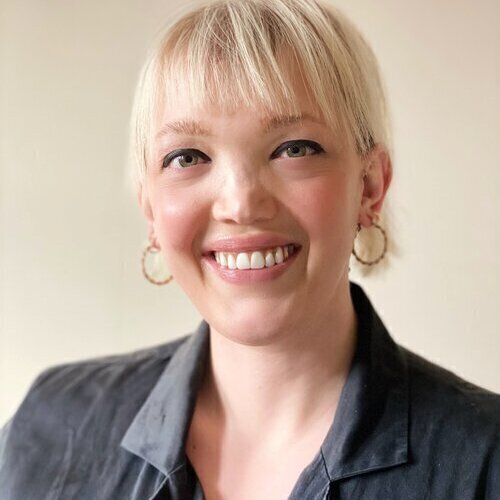Tell us a little bit about your background...
I grew up on an island called Newfoundland in the most eastern Canadian province, Newfoundland & Labrador. Newfoundland is an island famous for the hospitality of its people, the unique culture and the stunning coastlines. If you ask me where I am from, I will say Newfoundland first and Canada second which I feel says a lot about me.
I received a Bachelor of Commerce (Co-op) degree from Memorial University of Newfoundland in 2014 where I focused in International Business. It has always been a dream of mine to live and work abroad. In 2019 I moved to the UK and secured work with Enactus UK, a charity whose mission is to help university students start and sustain social enterprises. This was a full-circle moment as I am an Enactus Canada alumnus, having been an executive member of my university’s chapter during my undergraduate degree programme. I am particularly passionate about supporting female business owners and feminist third sector organizations.
In pre-pandemic times I enjoyed playing football (European, not American), volunteering, going to shows and frequenting museums in my free time. These days you’ll find me going for walks around Glasgow, reading or on FaceTime with friends and family.
What inspired you to study your subject?
My studies are motivated by the gender inequalities that exist in the world. I have been an advocate for positive, sustainable change since my days as an Enactus student and gaining an MSc Applied Gender Studies will better enable me to work towards the ambition of making gender equality a reality.
Why did you choose to continue studying for your Masters at the University of Strathclyde?
I chose to continue studying for my masters at the University of Strathclyde because I have a friend who completed their masters here last year and recommended doing so. I also researched many different Gender Studies masters programmes prior to applying and found that this programme best suited my ambitions. I am completing my masters to further my career. The MSc Applied Gender Studies programme at the University of Strathclyde promised to help me develop analytical and practical skills to engage critically with contemporary gender issues. Additionally, the option to complete a research placement with organizations from the feminist third sector was unique to the University of Strathclyde; the opportunity to gain real-world experience and connections during my studies was a key factor in my decision to study here.
What has been the highlight of your time at Strathclyde, so far?
The highlight of my time at Strathclyde so far has been securing a research placement at UN Women UK.
How have you found studying online, in the current situation?
Studying completely online is not something I anticipated when I applied to this programme and I have found it challenging. Though the staff at Strathclyde have done an incredible job moving to a virtual teaching model, I have struggled with screen fatigue and with a lack of division between coursework and homelife. It is also quite sad that I will not have the opportunity to meet my classmates in person and connect in a real way.
What specialist knowledge and professional skills have you developed whilst studying the course?
I feel as though I will be better able to answer this question at the end of my programme. My first term was a great introduction to feminist knowledge, theories, and research. This term I am hoping to gain specialist knowledge in feminism and international relations. Professionally, this term I hope to gain the skills to effectively mobilize communities to affect change through my research placement within the UN Women UK Safe Spaces Now project.
What would be your advice for people considering taking this course?
Do it! Investing in myself and taking this course was one of the best decisions I have made. The MSc Applied Gender Studies programme in particular is designed to be flexible so you can really tailor it to be the most useful and valuable to your future ambitions.
What have been the main challenges studying at postgraduate level?
For me it was going back to school after being out of academia for so many years, especially since I was pursuing a degree in a completely different discipline. I was worried I would not have the foundational knowledge or the research and academic writing skills of my classmates who came from the Humanities and that it would affect my ability to do well in the programme. However, I quickly realized that my classmates and I shared many of the same worries and concerns- we were all in it together.
How has your scholarship supported your studies?
My scholarship supported my studies by relieving the financial stress of having to find part-time work immediately upon my arrival in Glasgow. This enabled me to fully focus on my studies last term.
What do you think of the support available?
I think the support available at the University of Strathclyde is excellent. As a mature student, one of my concerns with continuing my studies was my academic writing abilities so last semester I took advantage of the Royal Literary Fund Fellows. I received one-on-one support for several of my assessments, which was incredibly helpful and confidence-boosting. Additionally, as this academic year has been made harder by the pandemic, the university has really been promoting their wellbeing advice and support services. I am appreciative that these services are available to me if I need them and I am proud to attend a university that recognizes the importance of the mental health and wellbeing of its students.
What are your ambitions for the future?
I want to continue working to affect change for women in a real and positive way, hopefully at UN Women. It is a dream of mine to work for them.
